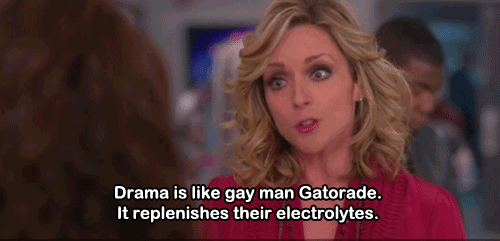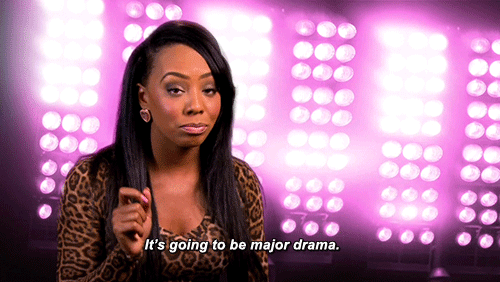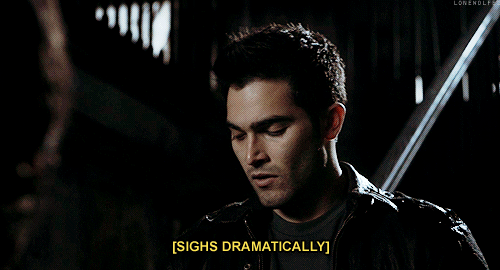
The biggest mistake people make in life is that they pursue dreams and goals without taking the time to discover what they are truly passionate about, and then allowing their dreams to unfold naturally as an expression of their passion and who they really are.
If you are doing something under the impression that you will be happy once you achieve this or that, or that you’ll love your job when you get that promotion, but not right now, then you are mistaken. Your happiness and your wealth (in the truest sense of the term) is determined by how you feel now, not by how you will feel when you achieve your goals.
When you make your happiness reliant on a potential future, all that you are doing is creating barriers in this moment from you being happy, being at peace, and thus being as effective and productive as you can be while working towards your goals.
If you are not in love with what you are doing, how can you reasonably assume that somehow you will fall in love with what you are doing later, much less be fulfilled by it?
The only way to a life of passion, happiness, and purpose that is uniquely your own and expression of who you really are, is to go from the inside out.
1. Follow Your Heart. There are people who say that it is a lie to tell people that they can achieve anything they set their minds on.
I agree.
But what is not a lie is that you can achieve anything that you set your mind and your heart on. When you can wholeheartedly do something, you do it with passion and enthusiasm. Moreover, whatever your heart is guiding you to do is the truth of who you are, and what you need to be doing.
To follow your heart, just start doing what you love to do. It doesn’t matter what it is, the more you try things and search within yourself for what you really love, eventually you will find it. Don’t just start picking new career options because you think that they are what you want, or because they appear to provide the lifestyle you want.
Live the life that you want now by doing more of what you love. Cultivate love by doing the things that you really love to do and you will be following your heart. Eventually that passion that you feel for what you are doing will find a way all by itself to create the life that you wanted to live all along.
If you are thinking about your family and your children and that you must provide for them, remember that they will respect a parent more who is filled with love and enthusiasm because they have the courage to do what they love every day, than a parent who provides all the financial means in the world but who is devoid of that love and passion which makes us human.
It is a preconception that you can’t earn a living doing what you love. And, it’s not true. There is always a way so don’t let your mind defeat you and distract you from following your passion. That doubt is the one thing that is keeping you from experiencing the true abundance, security, and freedom that comes from doing what you really love to do.
“Don’t need tools I’ve got my heart.” – Jack Johnson
2. Follow Your Curiosity. While following your heart gives you direction towards your passion and purpose in life, following your curiosity provides the foundation of knowledge for you to make your dreams reality.
By choosing to follow our heart and our curiosity we are deliberately choosing to leave behind our limiting beliefs and ideas of ourselves, and step into unlimited potential. We are choosing consciously to change our level of awareness by literally choosing a whole new way of being. Our curiosity is a manifestation of a deeper aspect of ourselves that is trying to surface, which includes with it the talents, abilities, potential and passion you never knew you had.
Follow your curiosity fluidly and you will expand your mind and you will grow exactly in the way that you need to be growing, and you will learn all that you need to learn because you will be tapping into a greater, unfathomable aspect of yourself and creation which will guide you perfectly to where you need to go. As Steve Jobs said in his Stanford commencement address:
“Much of what I stumbled into by following my curiosity and intuition turned out to be priceless later on.”
3. Never stop learning. If you followed the first two steps, then not only will you be absolutely fascinated by what you are doing with your life and what you are learning, but you will also love it immensely and be irrationally passionate and enthusiastic about it.
Fascination, curiosity, enthusiasm, passion: these are all essential qualities for success.
If you followed the first two steps then it will be easy to never stop learning because you will be exhilarated by what you are doing! What more could we ask for as human beings than to be filled with curiosity and fascination every day while doing what we love? The more you learn the more you grow, and the more that you learn in alignment with your dreams, the more powerful you become at what you do.
“Power rests on the kind of knowledge that one holds. What is the sense of knowing things that are useless? They will not prepare us for our unavoidable encounter with the unknown.” – Don Juan
4. Simplify, simplify, simplify. The less time you spend doing things you don’t want to do, the more time you have to spend doing what you love to do.
Sometimes I think that this is the key to life.
Most people spend their time thinking thoughts that don’t make them happy and which don’t produce uncontrollable feelings of love, or they do things they don’t like to do out of some form of obligation, or work at job they don’t like to make ends meet, and so on.
What we really need is time. There is more than enough time in the day for all our passions and dreams and family time to co-exist perfectly but we waste it doing things we don’t love to do!
If you really want to change your life, take the risk and start cutting out all those things you do that you know don’t make you happy, but which you think you have to be doing. I’m going to let you in on a little secret. You don’t have to do anything you don’t want to. And when you stop doing those things, you’re free.
Simplify not only how you think, and what you do, but also simplify your purpose and your dream. The more focused your dream becomes, the more definite it becomes. Instead of reading 3 books at a time on your subject, read one book wholeheartedly. Put some of your other passions aside for a while and focus on the one that fills you with energy and enthusiasm. See if you don’t actually enjoy it a little more when you don’t have to stress about fitting all those other things into your day.
“It’s not the daily increase but daily decrease. Hack away at the unessential.” – Bruce Lee
5. Be persistent. In many ways life is a lot like meditation. Perhaps that is why meditation is the key to life, and the key to unlocking your potential. In meditation, it doesn’t matter how many times you are distracted by your thoughts and become involved in them, what counts is how many times you bring yourself back to the silence between your thoughts.
If you can persistently bring yourself back when you get distracted, you will make progress until eventually your thoughts only crop up occasionally, or not at all. It is inevitable with practice. Just like the realization of your dreams will be with persistence. It doesn’t matter how many times you appear to fail, or how many times you lose focus. Everyone makes mistakes. It is part of life, and it is part of learning.
If you are doing what you love every day, if you are always learning, and if you are always following your curiosity, then you will always be growing and it will be nearly impossible to feel like you have failed … ever.
Failure can only exist when we have not learned from our mistakes. Yet as soon as you do learn from mistakes, with the gift of hindsight you will discover for yourself that your whole life was somehow orchestrated perfectly to get you to where you are now.
Be persistent in doing what you love and following your dreams and never will you regret a moment of your life, and if you can stick with them when things get difficult, as they always do, or when doubt creeps in, if you can stay steadfast in the course you have set for yourself you will meet with success.
Michael Jordan hit the most game-winning shots for his team in the whole history if the NBA, but what most people don’t know is that he also missed more game-winning shots than anyone else in the history of the NBA. In the words of Josh Waitzkin, “What made him the greatest was not perfection, but a willingness to put himself on the line as a way of life.”
Put yourself on the line, and see for yourself what you can become when you learn to deal with failure, but stay persistent in your commitment to you dreams, and maintain integrity in your expression of who you really are.
7. Meditate. I was going to put the last step as believing in yourself, but I chose not to because when it comes down to it, meditation is more important.
Don’t get me wrong, believing in yourself is absolutely essential. But the best way to believe in yourself is to experience your infinite potential, your power, your creativity, and your life purpose directly. And that is where meditation comes in.
When you learn how to get into the gap between your thoughts, something truly amazing happens. You feel the boundaries of who you thought you were begin to dissolve and fall away, and you experience yourself as something truly pure … and powerful.
Pure energy, consciousness, spirit, love, power, potential, whatever you want to call it, for it makes no difference. The point is that when you start to enter that awareness, that space between your thoughts more frequently, you start to center yourself in a place where nothing can ever go wrong and where you realize that you are perfect and complete in every way.
If you want to experience your true power directly, then meditate. Not only will you experience what you are capable of as you learn to identify with the infinite potential of the space between your thoughts instead of your thoughts themselves, but you will also discover who you are and thus become more attuned to what you love doing, what you’re curious about, and so on.
Then not only will you know that you are magnificent, but you will be able to experience that magnificence any time you want to, and channel it into all that you do.
Conclusion
Follow these steps, embody them, become them, and happiness will be your way, and you will be able to achieve anything and get exactly what you want in life, because you will become exactly what you always wanted to be.
.

Brandon West is the creator of Project Global Awakening. A website dedicated to the research of a variety of scientific and spiritual disciplines, and applying that knowledge to help you live an inspi
View the original article here














